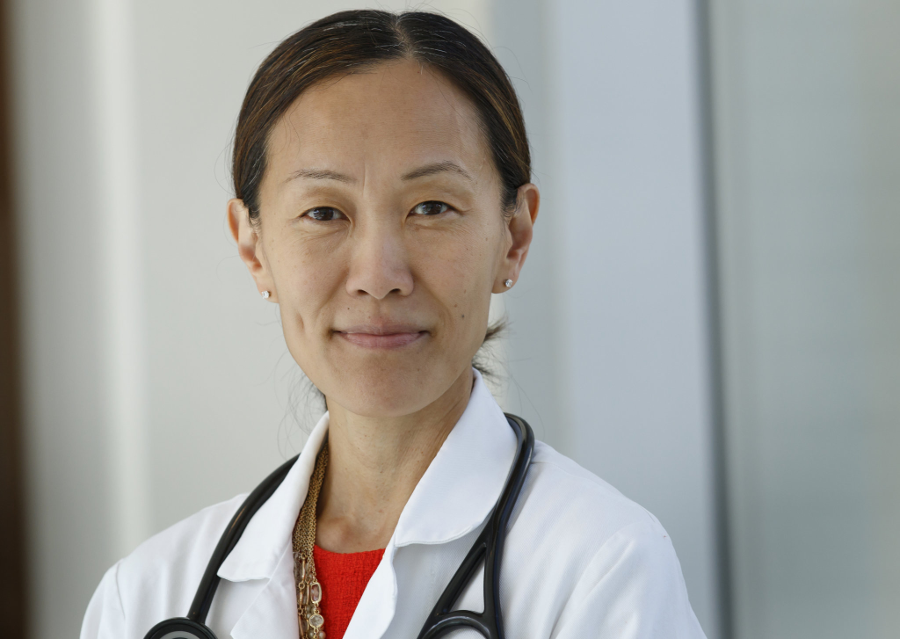Doctor Esther Choo opened up about the racism she has to face in hospitals with white patients who refuse to be treated by her, only because she is of Asian-descent, and therefore minimize her qualifications and expertise as a doctor.
Dr. Choo got inspired to talk about this subject after the white supremacy demonstrations of Charlotteville. She said that patients sometimes prefer to be treated by a white intern than by her, who has over a decade of experience. Sometimes these patients prefer to leave the hospital.
Choo says that she is not the only one who has gone through this. Many doctors are rejected by their patients because of racial origins and they have nobody to discuss this uncomfortable situation.


“The conversation usually goes like this. Me: ‘I understand your viewpoint. I trained at elite institutions & have been practicing for 15 years. You are welcome to refuse care under my hands, but I feel confident that I am the most qualified to care for you. Especially since the alternative is an intern.’ And they invariably pick the intern, as long as they are white. Or they leave,” Dr. Choo wrote in successive tweets that were retweeted by thousands.
There are a lot of White Nationalists in Oregon
Racism appears to be more alive than ever in society and the medical field is not an exception to that. Dr. Esther Choo has been treating patients over 15 years in Oregon. However, regardless of her experience, it is never easy to be rejected by patients because of her Asian features. She says that a few times a year, racist patients say to her that they don’t want her to treat them because she is not white. She also admitted having found tattooed Nazi symbols in undressed patients.
Therefore, she decided to use her Twitter account last Sunday to share her experience with racism in hospitals. Her tweets went viral. More than 24,000 people have since retweeted her.
“We’ve got a lot of white nationalists in Oregon. So a few times a year, a patient in the ER refuses treatment from me because of my race. She tweeted. “I used to cycle through disbelief, shame, anger. Now I just show compassion and move on,” Choo said.
Her tweets were inspired by events in Charlottesville, Virginia where a counter-protester – a young woman – lost her life during acts of violence in a white nationalist rally that was organized after the proposed removal of a statue honoring Confederate Gen. Robert E. Lee.
Dr. Esther Choo is an emergency medicine doctor. She is also an associate professor of the Department of Emergency Medicine at the OHSU School of Medicine.
Many doctors consider prejudice from patients a part of their routine at the hospital
Choo said that her experience with racist and intolerant patients is far from being uncommon in the medical community. It is a daily occurrence for many of her colleagues. Many patients don’t refuse the care of doctors with different races completely, but they show prejudice towards them and their capabilities. She said that she heard similar experiences as hers this past week. However, in general, it is something her colleagues are not used to talk about. Intolerance towards doctors is more and more common. That is why Choo said that many medical professionals consider patient prejudice as a routine part of their jobs.
“Maybe it’s that they’re from another country or because of their religious beliefs or their sexual orientation or their gender. But I’m hearing it from a lot of physicians that this is not unusual,” she described. “For me, it made me feel like this is a moment to share experiences of racism, and show that they follow us everywhere we go,”
Choo also said that she has tried to talk patients into accepting her care. She has tried to negotiate some sort of compromise where she is still guiding care, while not being directly in contact with the patients. Sometimes without being able to enter the patient’s hospital room. However, she said that changing their minds is quite rare. She believes that based on her experience, you don’t really get to talk people out of their ideology
She said that the first time she ever witnessed that experience was years ago when a very ill patient rejected to receive care from a doctor of color. However, she said that over time she has developed her own mechanisms to separate the intolerance she finds in patients from the fact that she is a doctor and a person; but Choo said that younger practitioners don’t know how to handle that and that they should be aware and prepared for these situations.
Source: CNN
